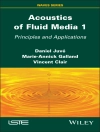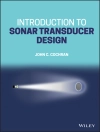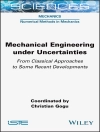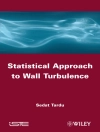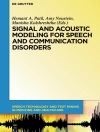This textbook presents essential methodology for physicists of the theory and applications of fluid mechanics within a single volume. Building steadily through a syllabus, it will be relevant to almost all undergraduate physics degrees which include an option on hydrodynamics, or a course in which hydrodynamics figures prominently.
สารบัญ
Preface xvii
1 Introduction 1
1.1 Fluids as a State of Matter 1
1.2 The Fundamental Equations for Flow of a Dissipationless Fluid 3
1.3 Lagrangian Frame 4
1.4 Eulerian Frame 8
1.5 Hydrostatics 12
1.6 Streamlines 16
1.7 Bernoulli’s Equation: Weak Form 16
1.8 Polytropic Gases 17
2 Flow of Ideal Fluids 25
2.1 Introduction 25
2.2 Kelvin’s Theorem 26
2.3 Irrotational Flow 31
2.4 Irrotational Flow–Velocity Potential and the Strong Form of Bernoulli’s Equation 32
2.5 Incompressible Flow–Streamfunction 33
2.6 Irrotational Incompressible Flow 35
2.7 Induced Velocity 38
2.8 Sources and Sinks 42
2.9 Two-Dimensional Flow 51
2.10 Applications of Analytic Functions in Fluid Mechanics 52
2.11 Force on a Body in Steady Two-Dimensional Incompressible Ideal Flow 66
2.12 Conformal Transforms 69
3 Viscous Fluids 75
3.1 Basic Concept of Viscosity 75
3.2 Differential Motion of a Fluid Element 76
3.3 Strain Rate 76
3.4 Stress 77
3.5 Viscous Stress 78
3.6 Incompressible Flow–Navier–Stokes Equation 80
3.7 Stokes’ or Creeping Flow 82
3.8 Dimensionless Analysis and Similarity 86
4 Waves and Instabilities in Fluids 93
4.1 Introduction 93
4.2 Small-Amplitude Surface Waves 94
4.3 Surface Waves in Infinite fluids 102
4.4 Surface Waves with Velocity Shear Across a Contact Discontinuity 104
4.5 Shallow Water Waves 106
4.6 Waves in a Stratified Fluid 108
4.7 Stability of Laminar Shear Flow 112
4.8 Nonlinear Instability 115
5 Turbulent Flow 117
5.1 Introduction 117
5.2 Fully Developed Turbulence 121
5.3 Turbulent Stress–Reynolds Stresses 126
5.4 Similarity Model of Shear in a Turbulent Flow–von Karman’s Hypothesis 127
5.5 Velocity Profile near a Wall in Fully Developed Turbulence–Law of the Wall 127
5.6 Turbulent Flow Through a Duct 129
6 Boundary Layer Flow 139
6.1 Introduction 139
6.2 The Laminar Boundary Layer in Steady Incompressible Two-Dimensional Flow–Prandtl’s Approximation 141
6.3 Laminar Boundary Layer over an Infinite Flat Plate–Blasius’s Solution 144
6.4 Laminar Boundary Layer–von Karman’s Momentum Integral Method 146
6.4.1 Application to Boundary Layers with an Applied Pressure Gradient 149
6.5 Boundary Layer Instability and the Onset of Turbulence–Tollmein–Schlichting Instability 151
6.6 Turbulent Boundary Layer on a Flat Smooth Plate 152
6.7 Boundary Layer Separation 156
6.8 Drag 161
6.9 Laminar Wake 163
6.10 Separation in the Turbulent Boundary Layer 166
7 Convective Heat Transfer 175
7.1 Introduction 175
7.2 Forced Convection 176
7.3 Heat Transfer in a Laminar Boundary Layer 189
7.4 Heat Transfer in a Turbulent Boundary Layer on a Smooth Flat Plate 193
7.5 Free or Natural Convection 194
8 Compressible Flow and Sound Waves 209
8.1 Introduction 209
8.2 Propagation of Small Disturbances 211
8.3 Reflection and Transmission of a Sound Wave at an Interface 214
8.4 Spherical Sound Waves 215
8.5 Cylindrical Sound Waves 217
9 Characteristics and Rarefactions 219
9.1 Mach Lines and Characteristics 219
9.2 Characteristics 221
9.3 One-Dimensional Time-Dependent Expansion 224
9.4 Steady Two-Dimensional Irrotational Expansion 231
10 Shock Waves 241
10.1 Introduction 241
10.2 The Shock Transition and the Rankine–Hugoniot Equations 242
10.3 The Shock Adiabat 245
10.4 Shocks in Real Gases 250
10.5 The Hydrodynamic Structure of the Shock Front 254
10.6 The Shock Front in Real Gases 264
10.7 Shock Tubes 267
10.8 Shock Interaction 271
10.9 Oblique Shocks 277
10.10 Adiabatic Compression 287
11 Aerofoils in Low-Speed Incompressible Flow 295
11.1 Introduction 295
11.2 Two-Dimensional Aerofoils 298
11.3 Generation of Lift on an Aerofoil 301
11.4 Pitching Moment about the Wing 302
11.5 Lift from a Thin Wing 304
11.6 Application of Conformal Transforms to the Properties of Aerofoils 309
11.7 The Two-Dimensional Panel Method 314
11.8 Three-Dimensional Wings 315
11.9 Three-Dimensional Panel Method 330
12 Aerofoils in High-Speed Compressible Fluid Flow 341
12.1 Introduction 341
12.2 Linearised Theory for Two-Dimensional Flows: Subsonic Compressible Flow around a Long Thin Aerofoil – Prandtl–Glauert Correction 344
12.3 Linearised Theory for Two-Dimensional Flows: Supersonic Flow about an Aerofoil – Ackeret’s Formula 347
12.4 Drag in High-Speed Compressible Flow 350
12.5 Linearised Theory of Three-Dimensional Supersonic Flow – von Karman Ogives and Sears–Haack Bodies 354
13 Deflagrations and Detonations 363
13.1 Introduction 363
13.2 Detonations, Deflagrations and the Hugoniot Plot 368
14 Self-similar Methods in Compressible Gas Flow and Intermediate Asymptotics 383
14.1 Introduction 383
14.2 Homogeneous Self-similar Flow of a Compressible Fluid 386
14.3 Centred Self-similar Flows 395
14.4 Flow Resulting from a Point Explosion in Gas – Blast Waves 397
14.5 Adiabatic Collapse of a Sphere 402
14.6 Convergent Shock Waves – Guderley’s Solution 407
Problems 417
Solutions 427
Bibliography 455
Index 463
เกี่ยวกับผู้แต่ง
Geoffrey Pert’s first academic appointment was in 1967 at the University of Alberta in the Electrical Engineering Dept as an Assistant Professor. In 1970 he was appointed as a lecturer in Applied Physics at Hull and proceeded up the scale to Professor in 1981. At Hull he taught Dimensional Analysis, Fluid Dynamics and Heat Transfer at different levels, amongst other material. In 1987 he transferred to York Physics Dept. as a Professor where he has taught Dimensional Analysis and Fluid Dynamics, and currently teach the course in fluid dynamics. His research began in 1962 on shock waves, but, when he joined Hull University, he moved into the field of laser produced plasmas. His work in this field has used fluid dynamics, particularly computational methods and he was elected FRS for this work in 1995.
Geoffrey Pert has taught fluid mechanics to undergraduate and postgraduate physicists for approximately 35 years.


